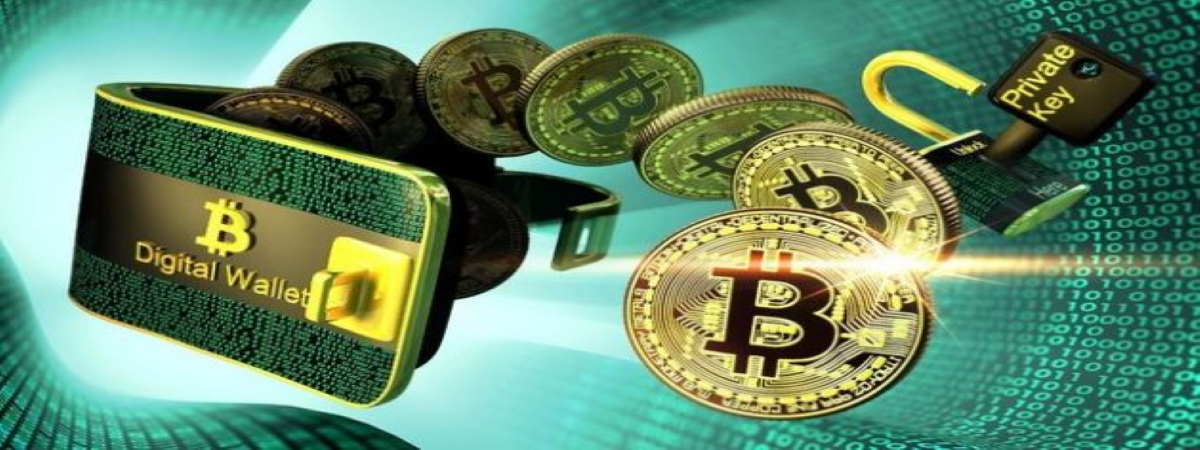
The economic transformation that is taking place due to the emergence of the so-called cryptocurrencies and the impact they may have on the way in which human beings carry out monetary transactions for the purchase and sale of products and services is enormous, and of a magnitude that few people understand. Until now, the centralized system of banking management was based on the trust of a central node that managed and controlled all transactions that we could make, but the emergence of decentralized technologies such as the blockchain that support protocols such as Bitcoin and its namesake digital currency, among many others, are changing the playing field.
¿Mining my own money?
For starters, few people understand the concept of “digital money.” How is it that I can “create” virtual currencies by “mining” them with a computer program and then use them as an exchange item for other things?
Can I then create my own currency and use it for whatever I want? Will it have value and will other people accept them from me? Yes to all questions, but with many nuances. The computer processing capabilities required to be able to “mine” bitcoins or other cryptocurrencies is increasingly within the reach of fewer and fewer people, companies and “mining” farms, since the cost in hardware and electricity greatly exceeds, depending on the price at which the currency you are operating under, the reward received in “tokens” or units of that cryptocurrency, making that, in general, an individual user can not compete or benefit from the possibility of obtaining currencies in this way. On the other hand, technologies such as Ethereum’s blockchain allow you to create and launch your own virtual currencies, which will be used only if the community generated around them finds value in them and accepts them as a medium of exchange.
Therefore, we are witnessing the gradual birth of a process of global decentralization in which there will no longer be central nexuses or nodes that carry out the supervision of all commercial transactions but simply the point-to-point users themselves who will “understand” each other to buy and sell whatever without the price of the service or product going through any bank.
A long adoption process
Even so, this is still far from becoming an everyday reality for the vast majority of human beings, among whom there are still millions of people who prefer to use physical money for security reasons and who are still reluctant to pay with a bank card, let alone cell phone payments. There are countries and areas of the planet where there is not even the possibility of paying in any other way than through physical money, or communities where technological penetration is still years away from the “early adopters” and the technological community that is developing these computer protocols and cryptocurrencies. The gap is, and always will be, huge, but that does not mean that it is important to stop taking care and analyzing both ends of society and the possible impact that one of them will have on the other.
One of the most common reasons for promoting the decentralized cryptocurrency system is the achievement of financial freedom in which no one supervises your transactions, “no one” understood as a government or central banking system. To a certain extent this is correct, on the other hand, most cryptocurrency buying and selling platforms are starting to demand identification documents to prove who their clients are in order to register them as holders of digital currencies. In any case, and at a psychological level, the adoption of this deregulated system encounters an obstacle that massively influences the slow implementation of the crypto economy in the market: the lack of a “central point of identification with the system”. This needs to be better explained to be understood.
A place to go
A “normal” person who has to bank, buy or sell, pay or get paid for his services pays a lot of attention to this area of his life, his resources, his economy, as it is the livelihood of his reality and his day-to-day life. Therefore, psychologically, we assign a lot of value to the security that comes from being able to know who to complain to, or go to, if you have a problem with your bank card, with a payment or a charge or a problematic transaction. So far, so normal and obvious. When the new technological systems tell us that they have made this central nexus of control disappear, giving us total freedom and indicating that to check all the above we only have to see in the blockchain the transactions that are registered simultaneously in all the nodes of the network, and, therefore, cannot be manipulated or falsified, at least for the moment, they are telling us that this security that gives us the power to go down to the bank and talk to the director of the office we have to replace it with a check in a technological system that already does all that and assures us that everything is correct.
This way of proceeding is natural for the new generations, and for the technological community behind the development of the crypto economy, but not for the majority of people on the planet, who feel, for the most part, that if they lack the central point of reference about “who is looking after” or “where are stored” their monetary resources they are being deprived of the only security that one has, again, simply on a psychological level, that that which literally keeps them “alive” (their economic and material resources) are safely stored at a point they can identify and “control”, vs. the abstract idea that your assets are circulating and stored (equally or more securely) in a decentralized network where millions of users have copies of all transactions on the entire blockchain at once. For a crypto-user this is not a problem, there is no psychological need to know “where your money is”, for a large part of the population in a large part of the countries of the planet it is, becoming a psychological barrier that, unconsciously, leads us to distrust the implementation of this type of digital economy until we have no choice but to use it because its expansion already covers our daily lives and we have managed to overcome this barrier or it is imposed on us by society like so many other things and inventions that we have ended up assuming because we had no choice but to do so.
It is usually a slow process, the mass adoption of something new and as disruptive as the blockchain-based technologies that cryptocurrencies are bringing to our lives, and, as we said, those who develop and already use them are possibly decades ahead of most human beings in terms of adoption of an economic management system that has the potential to change the entire financial system of the world.
Mistrust and lack of knowledge
On the other hand, will it be enough to break this psychological barrier to proceed with its expansion and global integration? Not necessarily, on the one hand there may be some unconscious distrust, but on the other hand, what exists worldwide is a lack of technological knowledge to understand how they work and how to operate with them, how I can control what I spend or what I receive and where I have to go if I have a problem with the system, therefore, it will take a lot of training and patience for all kinds of people away from the technological world begin to have interest in bitcoins, ethers and company. In this case, it will be normal, surely, that it will be the new generations who will have to explain to the current ones how they work and what they are for and what their advantages or disadvantages are, in the same way that it is often the grandchildren who explain to the grandparents how to use WhatsApp to send messages. Thus, those who are ahead, who are already trained in these issues, already have experience with them and already use them, are the ones who have the possibility to assist the rest of the population to learn about them and set foot in this decentralized ecosystem of economic management, where no one has control of anything and everything is in the hands of everyone, although that “everyone” does not refer to individual people either but to computer programs hosted on servers and networked computers that are responsible for the management of all transactions and financial exchanges through the encrypted protocols of digital currencies.
We will see in the coming years many changes in this ecosystem, ups and downs and variations in the economic models that have to come to adjust to this new vision of how humans will exchange products or services, with many cryptocurrencies disappearing because no user uses them, others being born from new projects or ideas from the thousands of start-ups looking for their niche in the market and others that may put society in check depending on how much “good” they do the world as a secure method of exchange or how much they are used to launder illicit activities or hide illegitimate transactions that escape the control of the current regulatory systems, which will have to find a way to adapt to the global changes in the world financial system and understand that, although they continue to be important as a “point of reference” for a large part of the population, another part is beginning to break down these barriers and ways of perceiving them and, thus, to leave them aside, causing a cryptoeconomic system to grow in parallel, which will surely give us much to talk about and delve into in the times to come.



